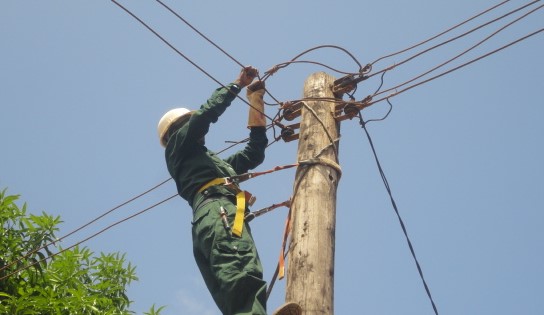Parts of Cybercrime Act opposed in court

RIGHTS: Activists contest sections of the law in court
What you need to know:
THRDC national coordinator Onesmo Olengurumwa said the move came after efforts to convince President Jakaya Kikwete not to sign its Bill into law failed
The Tanzania Human Rights Defenders Coalition (THRD-Coalition) is a non-government, non-partisan organisation of caring and dedicated people committed to promoting the rights of HRDs in Tanzania. Its members bring together years of experience, commitment and action in the field of human rights.
Dar es Salaam. Human rights activists yesterday filed a case at the High Court, protesting some sections of the Cybercrime Act which came into effect early this month.
Cybercrime Act attempts to address child pornography, cyber bullying, online impersonation, electronic production of racist and xenophobic content, unsolicited messages, illegal interception of communications and publication of false information.
The Tanzania Human Rights Defenders Coalition (THRDC), Legal and Human Rights Centre (LHRC) and other organisations filed a petition through advocate Jebra Kambole, as a complainant, seeking the amendment of some sections which are “threats to free and open expression online”.
THRDC national coordinator Onesmo Olengurumwa said the move came after their previous efforts to convince President Jakaya Kikwete not to sign the Bill into law failed.
“We think that after the President rejected our plea, the court will start hearing the case and provide justice,” Mr Olengurumwa said.
Before being enacted, the Bill drew criticism from different stakeholders, including opposition politicians, social media practitioners and human rights activists.
The activists called upon President Kikwete not to assent to the Bill, saying doing so would discourage citizen journalism as well as add draconian laws to the already existing ones.
The activists said the Cybercrime Act will subject many Tanzanians to being victims of punishments.
He said, among others, they would challenge the law in its Sections 31,33,34,35 and 37 which give powers to police to search users of online data in the absence of a court order, thus contradicting Article 16 of the constitution. The law also stipulates that service providers are liable to provide information on their clients upon demand.
Advocate Kambole noted that Sections 4,5 and 45 of this Act deny the right to look for, obtain and disseminate information, which is also against Article 18 of the constitution.
He further said their case will protest Sections 6,7,8,10,11,14,19,21 and 22 of the Cybercrime Act, saying they contain meaningless words that may lead to bad translation for law implementers, thus violate human rights and infringe upon Article 17 of the constitution.
He said in their analysis, they found out that if this law continues to be used it will go against the freedom of press, freedom of expression, freedom of finding information, right to privacy and right to access the court.
Meanwhile, information and communication technology stakeholders yesterday maintained that the law was important despite the public outcry.
Speaking at a one-day National Internet Governance Forum, the director of Internet Services at the Institute of Finance Management, Dr Jim Yonaz, called upon the government to speed up the establishment of the regulations that will guide the law implementation.
Additional reporting by Saumu Mwalimu and Janeth Absalom


